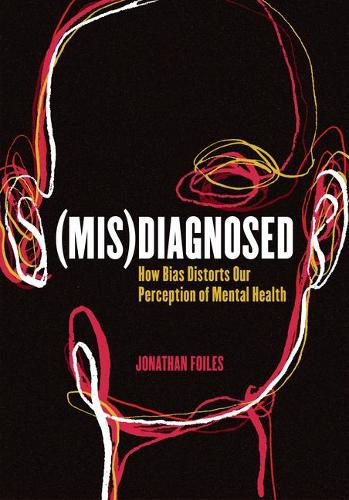Readings Newsletter
Become a Readings Member to make your shopping experience even easier.
Sign in or sign up for free!
You’re not far away from qualifying for FREE standard shipping within Australia
You’ve qualified for FREE standard shipping within Australia
The cart is loading…






A passionate and well-informed study on the importance of improving inclusiveness in mental health evaluations. Kirkus Reviews
In a clear, empathetic style, Jonathan Foiles, author of the critically acclaimed This City Is Killing Me, takes us through troubling examples of bias in mental health work. Placing them in context of past blunders in the history of psychiatry and the DSM, he looks closely at questions that lay bare the intersections between mental health care, race, gender, and sexuality:
Why are women more likely to be labeled borderline personalities?
Is transphobia being treated today like homosexuality was in the past?
Has protest psychosis, a term used to diagnose Black men during the civil rights era, simply been renamed schizoaffective disorder?
How different is our current label of intellectual disability from the history of eugenics?
What does it actually mean to be diagnosed with a mental illness ?
This slim but wide-ranging collection of essays wrestles with these questions and offers potential ways forward in a world where mental health diagnoses can be helpful, but not necessarily absolute.
A pragmatic and sympathetic guide to how we might craft a better and more just therapeutic future for all people.
$9.00 standard shipping within Australia
FREE standard shipping within Australia for orders over $100.00
Express & International shipping calculated at checkout
A passionate and well-informed study on the importance of improving inclusiveness in mental health evaluations. Kirkus Reviews
In a clear, empathetic style, Jonathan Foiles, author of the critically acclaimed This City Is Killing Me, takes us through troubling examples of bias in mental health work. Placing them in context of past blunders in the history of psychiatry and the DSM, he looks closely at questions that lay bare the intersections between mental health care, race, gender, and sexuality:
Why are women more likely to be labeled borderline personalities?
Is transphobia being treated today like homosexuality was in the past?
Has protest psychosis, a term used to diagnose Black men during the civil rights era, simply been renamed schizoaffective disorder?
How different is our current label of intellectual disability from the history of eugenics?
What does it actually mean to be diagnosed with a mental illness ?
This slim but wide-ranging collection of essays wrestles with these questions and offers potential ways forward in a world where mental health diagnoses can be helpful, but not necessarily absolute.
A pragmatic and sympathetic guide to how we might craft a better and more just therapeutic future for all people.